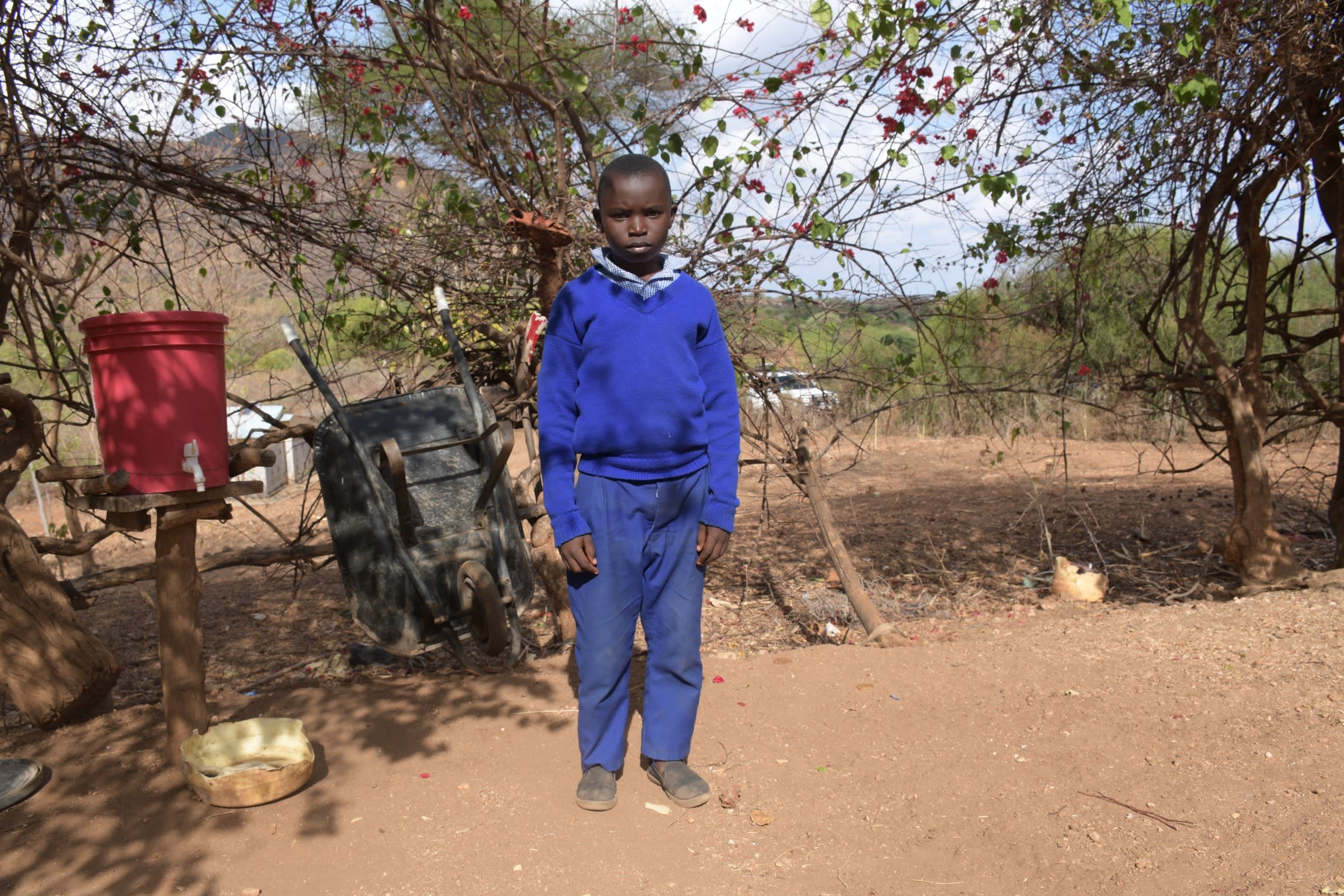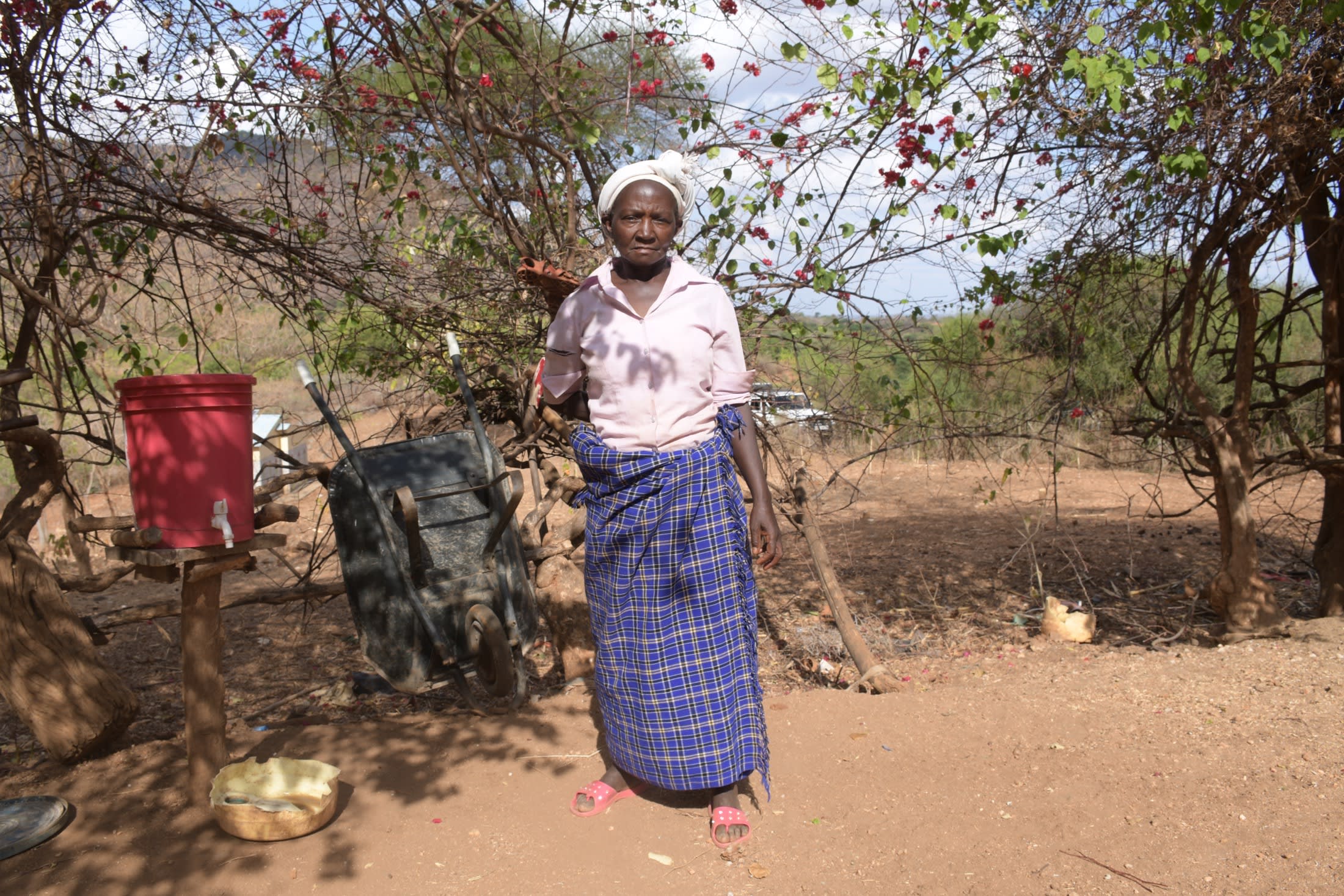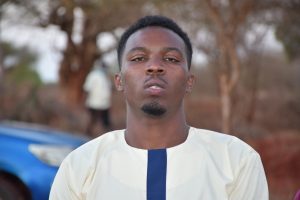The 600 people who live in Kanyululu primarily collect their water from the local unprotected spring because it is the nearest source. But the spring is seasonal, so during the year's dry season, the water level is deficient or dries up altogether.

The community's alternatives are collecting rainwater during the short rainy season, drawing water from protected dug wells, or a standpipe (both of the latter options being quite far away). But it takes some people up to two hours, walking up to 2 km (1.24 miles) per trip, to collect water from these sources.
“Households with travel times greater than 30 minutes have been shown to collect progressively less water. Limited water availability may reduce the amount of water that is used for hygiene in the household.” - The Relationship between Distance to Water Source and Moderate-to-Severe Diarrhea in the Global Enterics Multi-Center Study in Kenya, 2008–2011) - American Journal of Tropical Science and Medicine
Children are also required to carry water to school, thus they have to walk to the distant water point then on to school. It is exhausting for everyone.

Student Kevin W., 12, in the photo above, said, "I need to walk for up to 1 kilometer to the current water points and carry the water back home after classes, which leaves me exhausted and unable to focus on my studies fully."
Community member Mbua Kaniu, 70, shown in the photo below, knows the value a sand dam would add to her community because she is a member of the Kamami Self-Help Group, which has implemented projects in neighboring communities.
"I have to wake up early to go fetch water at the shallow well or public tap in Kasioni center," Mbua said.
"Although we have already implemented two sand dams and shallow wells, they are quite far from my home and have insufficient amounts of water to sustain the community. I have to walk for about a kilometer to the water point under the scorching sun."

She continued, "The exhaustion from the long walks leaves me with less energy to focus on other activities such as farming. I also have to use water sparingly, which negatively impacts hygiene and sanitation."
Like Mbua, many others in the community lack energy. The current water sources cannot offer adequate water, so they leave their daily tasks undone. Farming is neglected and results in a lack of income and proper nutrition. And poor hygiene conditions persist because the available water has to be used sparingly.
The proposed water project will be close to Kanyululu's center and easily accessible, meaning shorter distances for everyone to walk and less exhaustion. Hopefully, with less fatigue and access to sufficient water, the community members will successfully farm, and their daily hygiene will improve.
What We Can Do:
Reliable Water for Kanyululu
Our main entry point into this community has been the Kamami Self-Help Group, which comprises households working together to address water and food scarcity in their region. These members will be our hands and feet in constructing water projects and spreading the message of good hygiene and sanitation to everyone.
Hand-Dug Well
This particular hand-dug well will be built adjacent to a sand dam project, which will supply clean drinking water once it rains. We have provided the group with the tools needed for excavation. With the guidance of our artisans and mechanics, the excavated well will be cased, sealed with a well pad, and then finished with a new AfriDev pump.
Excavation takes a month or more on average, depending on the nature of the rock beneath. Construction of the well lining and installation of the pump takes 12 days maximum. The well will be lined with a concrete wall including perforations so that once it rains, water will filter in from the sand dam.
This well will bring clean water closer to families.
New Knowledge
These community members currently do their best to practice good hygiene and sanitation, but their severe lack of water has significantly hindered reaching their fullest potential.
We will hold hygiene and sanitation training sessions with the Self-Help Group and other community members to teach essential hygiene practices and daily habits to establish at the personal, household, and community levels. This training will help to ensure that participants have the knowledge they need to make the most out of their new water point as soon as the water is flowing.
One of the most important topics we plan to cover is handling, storage, and water treatment. Having a clean water source will be extremely helpful, but it is useless if water gets contaminated when it is consumed. We will also emphasize the importance of handwashing.
The community and we firmly believe that all of these components will work together to improve living standards here, which will help to unlock the potential for these community members to live better, healthier lives.
We typically work with self-help groups for 3 to 5 years on multiple water projects. We will conduct follow-up visits and refresher training during this period and remain in contact with the group after all of the projects are completed to support their efforts to improve sanitation and hygiene.





 Protected Dug Well
Protected Dug Well
 Rehabilitation Project
Rehabilitation Project




























